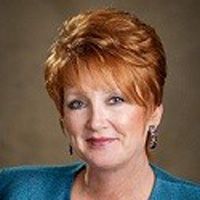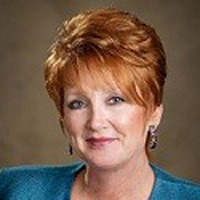Does Your 401(k) Come with a Self-Directed Brokerage Account Option?
How to utilize and capitalize on self-directed brokerage accounts within your 401(k) plan. More options may offer more possibilities.


Profit and prosper with the best of Kiplinger's advice on investing, taxes, retirement, personal finance and much more. Delivered daily. Enter your email in the box and click Sign Me Up.
You are now subscribed
Your newsletter sign-up was successful
Want to add more newsletters?

Delivered daily
Kiplinger Today
Profit and prosper with the best of Kiplinger's advice on investing, taxes, retirement, personal finance and much more delivered daily. Smart money moves start here.

Sent five days a week
Kiplinger A Step Ahead
Get practical help to make better financial decisions in your everyday life, from spending to savings on top deals.

Delivered daily
Kiplinger Closing Bell
Get today's biggest financial and investing headlines delivered to your inbox every day the U.S. stock market is open.

Sent twice a week
Kiplinger Adviser Intel
Financial pros across the country share best practices and fresh tactics to preserve and grow your wealth.

Delivered weekly
Kiplinger Tax Tips
Trim your federal and state tax bills with practical tax-planning and tax-cutting strategies.

Sent twice a week
Kiplinger Retirement Tips
Your twice-a-week guide to planning and enjoying a financially secure and richly rewarding retirement

Sent bimonthly.
Kiplinger Adviser Angle
Insights for advisers, wealth managers and other financial professionals.

Sent twice a week
Kiplinger Investing Weekly
Your twice-a-week roundup of promising stocks, funds, companies and industries you should consider, ones you should avoid, and why.

Sent weekly for six weeks
Kiplinger Invest for Retirement
Your step-by-step six-part series on how to invest for retirement, from devising a successful strategy to exactly which investments to choose.
Since the virtual disappearance of the defined benefit pension, many employers have offered employees 401(k) plans, which are defined contribution plans. Under 401(k)s, employees can contribute a certain portion of their wages on a pretax basis and invest those funds. In many cases, the employer will match these funds.
The plan provider has chosen a menu of investments for the participant to choose from, but the latest development in this plan is the arrival of the self-directed brokerage 401(k) account as an investment option (SDBA). This kind of account can offer exciting new opportunities to plan participants, but it also increases the risk to the investor, so it is crucial to understand the plan to enable the most success.
What are my investment choices now?
Since 1980 when 401(k)s first went into effect, 401(k)s have generally been offered to employees with a limited palette of investment options. Most employers try to offer a variety of investment choices that are diversified, because they have to follow the rules and regulations under the Employee Retirement Income Security Act (ERISA), but many plans come up short. The employee does not have input into these choices, so they can only make selections within the limited menu offered.
From just $107.88 $24.99 for Kiplinger Personal Finance
Become a smarter, better informed investor. Subscribe from just $107.88 $24.99, plus get up to 4 Special Issues

Sign up for Kiplinger’s Free Newsletters
Profit and prosper with the best of expert advice on investing, taxes, retirement, personal finance and more - straight to your e-mail.
Profit and prosper with the best of expert advice - straight to your e-mail.
Is it possible to follow a different path?
Increasingly, however, employers are making self-directed brokerage accounts available in their 401(k) plans in response to employee demand for more investment options. As many as 40% of 401(k) plans now offer this type of account. In fact, the balance in self-directed brokerage 401(k) accounts had continued to rise last year (a 6% increase since Q2 and a 9% increase year over year), despite the havoc in the COVID-19 markets.
A self-directed brokerage 401(k) account is held by the plan administrator, but the plan participant has, in effect, their own brokerage account in which all transactions are made at their direction. The investment choices are usually much more numerous than in the plan menu. Some employers give more freedom than others. For instance, some SDBAs only allow you access to a greater menu of mutual funds, while others allow you to invest in individual stocks, bonds, ETFs and a broader array of mutual funds.
So, essentially, the good news is wider investment options … but the bad news is higher risk.
What are the additional risks of an SDBA?
The main risk is also the main benefit: The employee has more freedom and more investments to choose from, and fewer restrictions to trading. This can lead to emotional investing, not following prudent portfolio management techniques and not monitoring the investments closely. Someone could, for instance, put all of their 401(k) into a single stock or small basket of highly volatile stocks. They can attempt to time the market by making frequent trades and get “whipsawed” trying to do so. There is nothing there to protect them from themselves.
How can you remain protected?
A self-directed brokerage 401(k) account also allows the plan participant to seek a professional adviser. No longer restricted to generic index funds or one or two mutual fund families, a plan participant can hire a professional to lead them to the investments and returns that they are seeking. A professional adviser will already have the expertise to understand the operation of the tax and investment limitation rules applicable to retirement accounts. Studies by Vanguard show that when investors work with a professional adviser, it can add 3% or more to your portfolio value. And, 3% compounded over time can make a huge difference in the value of an account.
The adviser can tailor a plan to the participant’s precise needs and goals and guide them on contribution levels and other matters related to the account. Finally, the adviser can look at the plan assets as part of the participant’s overall financial planning. In the end, that adviser can help make the most of plan assets and contribute to a richer, more secure retirement for the participant.
A self-directed brokerage 401(k) account can offer plan participants exciting new opportunities to invest for retirement. The important thing to remember is to be prepared and understand your plan to avoid mistakes that could harm your long-term financial future. A professional adviser can help you achieve that goal.
Profit and prosper with the best of Kiplinger's advice on investing, taxes, retirement, personal finance and much more. Delivered daily. Enter your email in the box and click Sign Me Up.

Renée Pastor is Founder & Wealth Manager at The Pastor Financial Group, a comprehensive financial planning and wealth management practice headquartered in New Orleans. The firm specializes in retirement planning and 401(k) management for families and individuals nationwide. To learn more, please visit thepastorgroup.com.
-
 5 Vince Lombardi Quotes Retirees Should Live By
5 Vince Lombardi Quotes Retirees Should Live ByThe iconic football coach's philosophy can help retirees win at the game of life.
-
 The $200,000 Olympic 'Pension' is a Retirement Game-Changer for Team USA
The $200,000 Olympic 'Pension' is a Retirement Game-Changer for Team USAThe donation by financier Ross Stevens is meant to be a "retirement program" for Team USA Olympic and Paralympic athletes.
-
 10 Cheapest Places to Live in Colorado
10 Cheapest Places to Live in ColoradoProperty Tax Looking for a cozy cabin near the slopes? These Colorado counties combine reasonable house prices with the state's lowest property tax bills.
-
 Don't Bury Your Kids in Taxes: How to Position Your Investments to Help Create More Wealth for Them
Don't Bury Your Kids in Taxes: How to Position Your Investments to Help Create More Wealth for ThemTo minimize your heirs' tax burden, focus on aligning your investment account types and assets with your estate plan, and pay attention to the impact of RMDs.
-
 Are You 'Too Old' to Benefit From an Annuity?
Are You 'Too Old' to Benefit From an Annuity?Probably not, even if you're in your 70s or 80s, but it depends on your circumstances and the kind of annuity you're considering.
-
 In Your 50s and Seeing Retirement in the Distance? What You Do Now Can Make a Significant Impact
In Your 50s and Seeing Retirement in the Distance? What You Do Now Can Make a Significant ImpactThis is the perfect time to assess whether your retirement planning is on track and determine what steps you need to take if it's not.
-
 Your Retirement Isn't Set in Stone, But It Can Be a Work of Art
Your Retirement Isn't Set in Stone, But It Can Be a Work of ArtSetting and forgetting your retirement plan will make it hard to cope with life's challenges. Instead, consider redrawing and refining your plan as you go.
-
 The Bear Market Protocol: 3 Strategies to Consider in a Down Market
The Bear Market Protocol: 3 Strategies to Consider in a Down MarketThe Bear Market Protocol: 3 Strategies for a Down Market From buying the dip to strategic Roth conversions, there are several ways to use a bear market to your advantage — once you get over the fear factor.
-
 For the 2% Club, the Guardrails Approach and the 4% Rule Do Not Work: Here's What Works Instead
For the 2% Club, the Guardrails Approach and the 4% Rule Do Not Work: Here's What Works InsteadFor retirees with a pension, traditional withdrawal rules could be too restrictive. You need a tailored income plan that is much more flexible and realistic.
-
 Retiring Next Year? Now Is the Time to Start Designing What Your Retirement Will Look Like
Retiring Next Year? Now Is the Time to Start Designing What Your Retirement Will Look LikeThis is when you should be shifting your focus from growing your portfolio to designing an income and tax strategy that aligns your resources with your purpose.
-
 I'm a Financial Planner: This Layered Approach for Your Retirement Money Can Help Lower Your Stress
I'm a Financial Planner: This Layered Approach for Your Retirement Money Can Help Lower Your StressTo be confident about retirement, consider building a safety net by dividing assets into distinct layers and establishing a regular review process. Here's how.